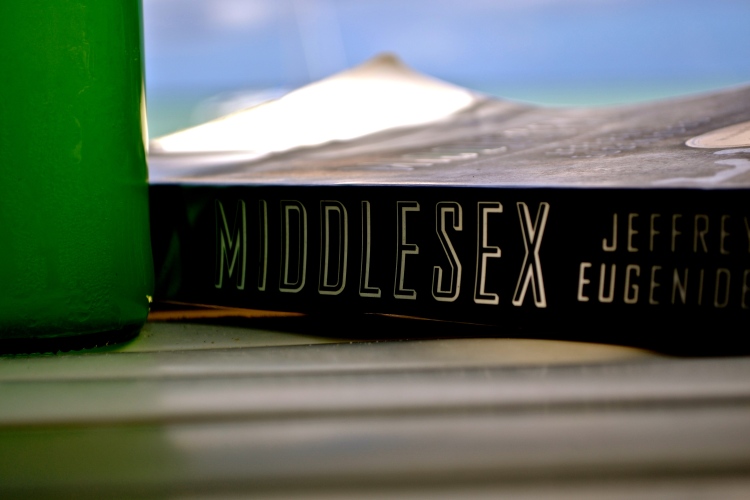In a Free State- V.S. Naipaul (1971-Fiction)
Man Booker Prize (1971)
“Perhaps that had been the only pure time, at the beginning, when the ancient artist, knowing no other land, had learned to look at his own and had seen it as complete.”
-V.S. Naipaul, In a Free State
The Blind Assassin– Margaret Atwood (2000-Fiction)
Man Booker Prize (2000), TIME MAGAZINE’S 100 BEST ENGLISH LANGUAGE NOVELS PUBLISHED SINCE 1923
“But thoughtless ingratitude is the armour of the young; without it, how would they ever get through life? The old wish the young well, but they wish them ill also: they would like to eat them up, and absorb their vitality, and remain immortal themselves. Without the protection of surliness and levity, all children would be crushed by the past—the past of others, loaded onto their shoulders. Selfishness is their saving grace.”
-Margaret Atwood, The Blind Assassin
Don Quixote– Miguel de Cervantes (1605/1615-Fiction)
“To be witty and write humorously requires great genius. The most cunning part in a comedy is the clown’s, for a man who wants to be taken for a simpleton must never be one.”
-Miguel de Cervantes, Don Quixote
The Beautiful and Damned– F. Scott Fitzgerald (1922-Fiction)
“Beauty, who was born anew every hundred years, sat in a sort of outdoor waiting room through which blew gusts of white wind and occasionally a breathless hurried star. The stars winked at her intimately as they went by and the winds made a soft incessant flurry in her hair. She was incomprehensible, for, in her, soul and spirit were one—the beauty of her body was the essence of her soul. She was that unity sought for by philosophers through many centuries. In this outdoor waiting room of winds and stars she had been sitting for a hundred years, at peace in the contemplation of herself.”
-F. Scott Fitzgerald, The Beautiful and Damned
Hamlet– William Shakespeare (C.1600-Fiction)
“Rightly to be great/Is not to stir without great argument,/But greatly to find quarrel in a straw/When honor’s at the stake.”
-William Shakespeare, Hamlet
The Picture of Dorian Gray– Oscar Wilde (1891-Fiction)
“Life is not governed by will or intention, life is a question of nerves, and fibres, and slowly built-up cells in which thought hides itself and passion has its dreams.”
-Oscar Wilde, The Picture of Dorian Gray
The Emperor of All Maladies: A Biography of Cancer– Siddhartha Mukherjee (2010-Nonfiction)
Pulitzer Prize for General Nonfiction (2011), PEN/E.O. Wilson Literary Science Writing Award (2011)
“A patient, long before he becomes the subject of medical scrutiny, is, at first, simply a storyteller, a narrator of suffering—a traveler who has visited the kingdom of the ill. To relieve an illness, one must begin, then, by unburdening its story.”
-Siddhartha Mukherjee, The Emperor of All Maladies
The Hunger Games– Suzanne Collins (2008-Fiction)
“I don’t know how to say it exactly. Only…I want to die as myself. Does that make any sense?”
-Suzanne Collins, The Hunger Games
Zeitoun– Dave Eggers (2009-Nonfiction)
Dayton Literary Peace Prize for Nonfiction (2010)
“He can only have faith that will never again be forgotten, denied, called by a name other than his own. He must trust, and he must have faith. And so he builds, because what is building, and rebuilding and rebuilding again, but an act of faith? There is no faith like the faith of a builder of homes in coastal Louisiana. And there is no better way to prove to God and neighbor that you were there, that you are there, that you are human than to build. Who could ever again deny he belonged here? If he needs to restore every home in this city, he will, to prove he is part of this place.”
-Dave Eggers, Zeitoun
Pride and Prejudice– Jane Austen (1813-Fiction)
“Is not general incivility the very essence of love?”
-Jane Austen, Pride and Prejudice
Freakonomics: A Rogue Economist Explores the Hidden Side of Everything– Steven Levitt & Stephen Dubner (2005-Nonfiction)
“Armed with information, experts can exert a gigantic, if unspoken, leverage: fear. Fear that your children will find you dead on the bathroom floor of a heart attack if you do not have angioplasty surgery. Fear that a cheap casket will expose your grandmother to a terrible underground fate. Fear that a $25,000 car will crumple like a toy in an accident, whereas a $50,000 car will wrap your loved ones in a cocoon of impregnable steel. The fear created by commercial experts may not quite rival the fear created by terrorists like the Ku Klux Klan, but the principle is the same.”
-Steven Levitt and Stephen Dubner, Freakonomics
A Separate Peace– John Knowles (1959-Fiction)
National Book Award Finalist for Fiction (1961)
“Everyone has a moment in history which belongs particularly to him. It is the moment when his emotions achieve their most powerful sway over him, and afterward when you say to this person ‘the world today’ or ‘life’ or ‘reality’ he will assume that you mean this moment, even if it is fifty years past. The world, through his unleashed emotions, imprinted itself upon him, and he carries the stamp of that passing moment forever.”
-John Knowles, A Separate Peace
My Sister’s Keeper– Jodi Picoult (2004-Fiction)
“The Aboriginal people of Australia, for example, look between the constellations of the Greeks and the Romans into the black wash of sky, and find an emu hiding under the Southern Cross where there are no stars. There are just as many stories to be told in the dark spots as there are in the bright ones.”
-Jodi Picoult, My Sister’s Keeper
Guns, Germs, and Steel: The Fates of Human Societies– Jared Diamond (1997-Nonfiction)
Pulitzer Prize for General Nonfiction (1998)
“We tend to seek easy, single-factor explanations of success. For most important things, though, success actually requires avoiding many separate possible causes of failure.”
-Jared Diamond, Guns, Germs, and Steel
